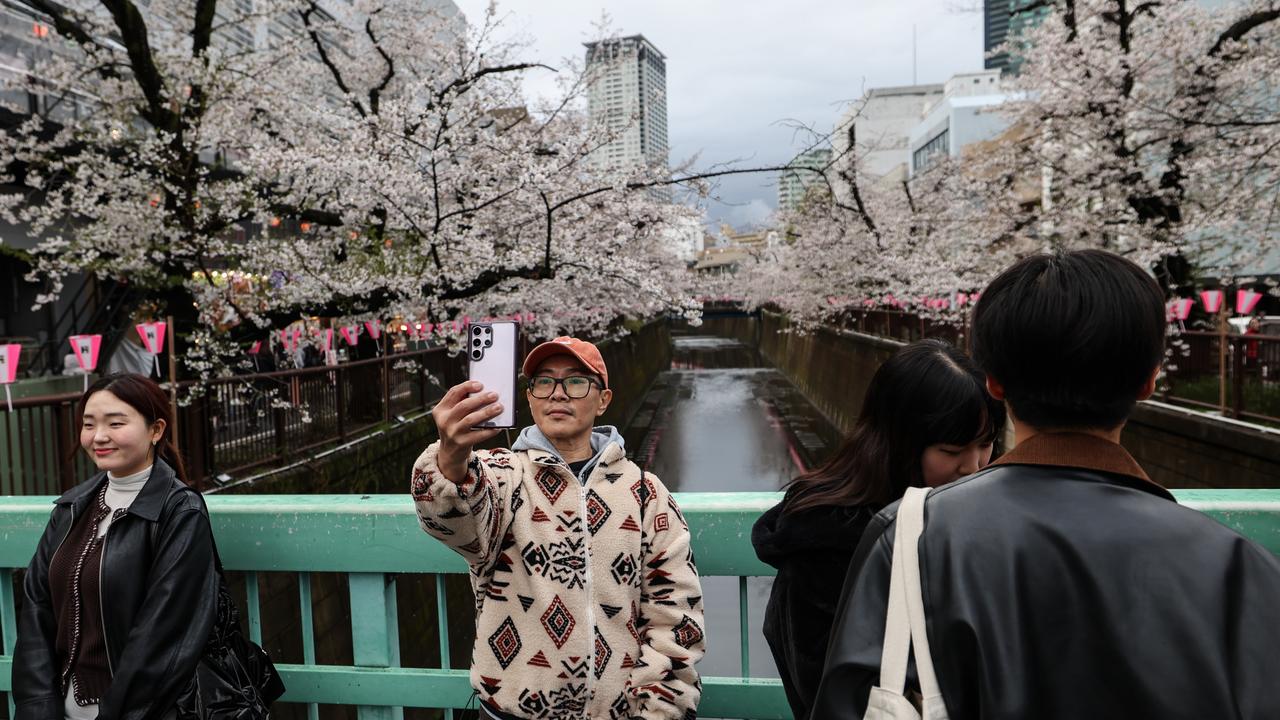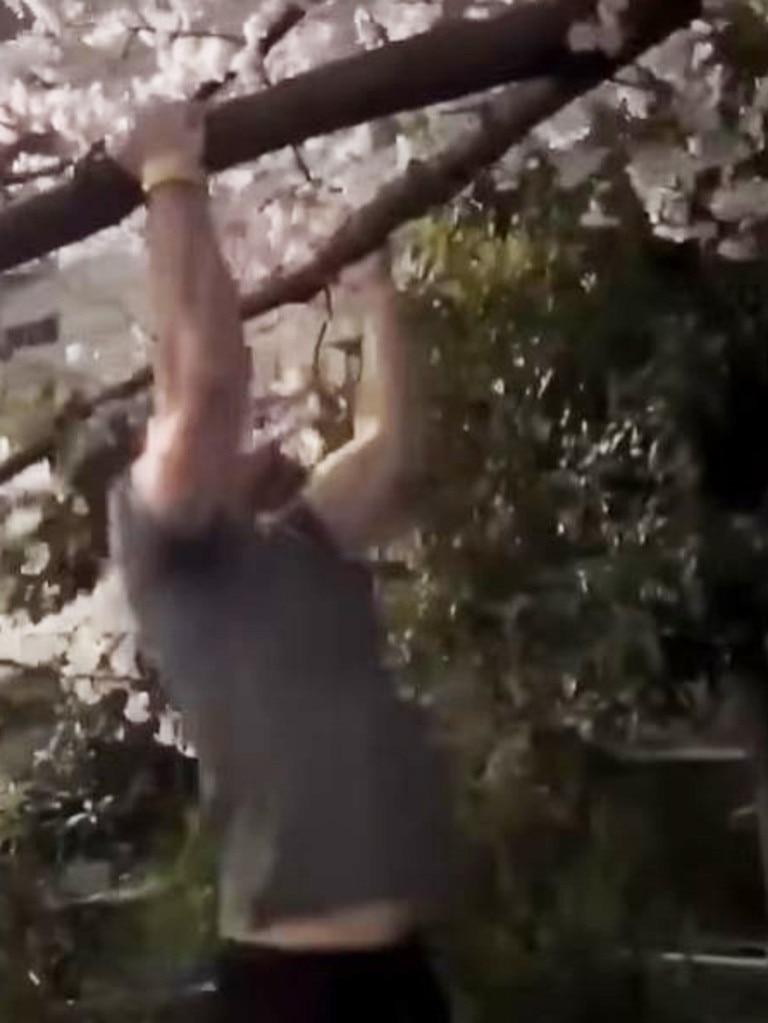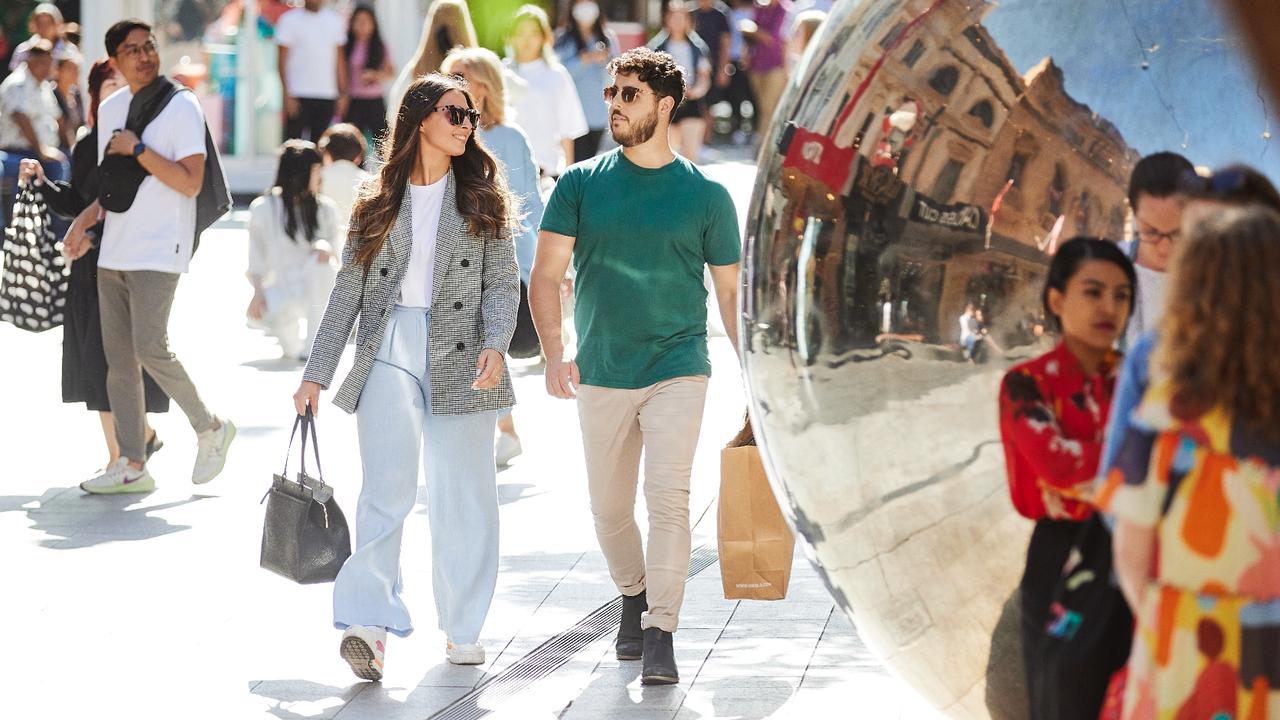Popular influencer Mizkif slammed for culturally insensitive behaviour in Japan
A YouTube personality has come under fire for culturally insensitive behaviour, including damaging iconic cherry blossom trees, as more travellers choose Japan over Bali.

SA News
Don't miss out on the headlines from SA News. Followed categories will be added to My News.
For people in Japan, cherry blossom season is a time for celebration and contemplation – but for a bunch of foreign bozos, this year’s flowering season is about getting page views on a video they made doing chin-ups on fragile branches, shaking off the precious petals.
In the latest incident, a video – by American content creator Matt Rinaudo, who is better known to followers as Mizkif – has drawn widespread condemnation for his disrespectful behaviour.
He and some friends are shown swinging on branches and laughing.
Within hours of posting the video on YouTube, where he has more than one million subscribers, the 30-year-old was under siege for his antics.
In an online message, he said: “A few days ago, I did pull-ups on a cherry blossom tree. I posted the video and went to bed. The moment I was informed by a friend on the severity of the situation, I immediately deleted the post and regretted my decision. To any viewers, or tourists coming to Japan, please understand these trees are sacred to Japan.”

Mizkif’s actions illustrates a growing problem for Japan: visitors behaving badly.
Since the country reopened its borders after the Covid pandemic, unprecedented numbers of travellers are flooding in. Japan welcomed almost 37 million foreign tourists last year.
Japan National Tourism Organization figures show that during the first two months of this year there were 7.1 million visitors from overseas. That includes 229,000 Australians, representing a 34.6 per cent increase compared with the same period in 2024.
While the vast majority of Australians are doing the right thing while they enjoy Japan’s rich culture, precious cuisine and beautiful scenery, the sheer volume of people flocking to Tokyo, Osaka, Kyoto, and other popular destinations in the snow, is causing problems.
The executive director of the Australian and New Zealand Chamber of Commerce in Japan, Craig Usmar, notes the tourism boom is helpful for Japan’s economy, but “it also places significant strain on local infrastructure and services, including overcrowding at famous sites, public transport congestion, and waste being disposed of incorrectly, which are unfortunately becoming common issues”.
“On the whole, Australian visitors are friendly, curious and enthusiastic about Japanese culture,” he says. “However, cultural differences can sometimes lead to unintentional offence, especially around public etiquette and quietness in shared spaces, particularly on the train.
“Best practice for Australian tourists should include observing and mirroring local behaviour, for example be quiet on trains, take shoes off where required, and avoid eating while walking.
“Learning a few basic Japanese phrases and understanding cultural Dos and Don’ts before travelling can go a long way in fostering mutual respect and enjoyable interactions.”


Mr Usmar warns even well-meaning visitors may struggle with Japan’s unspoken social rules, explaining “Japanese indirectness or politeness can be misread by tourists: ‘maybe’ often means ‘no’”.
“Most issues stem from misunderstandings, not malice, and can be avoided with cultural awareness and respectful behaviour,” he adds.
Something that is often a problem for Australians comes to tattoos. Most public bathhouses and swimming pools do not allow people with tattoos to use the facilities, or ask they cover them up before bathing or swimming.
Travellers are advised to read up on basic etiquette and customs before they hop on a plane to Japan, and be aware that local people’s daily lives are being impacted by mass tourism.
Visitors generally receive a warm welcome, but in some communities that have been pushed to the brink, access to attractions is being limited and tourist taxes applied.
Long-term Japan resident, Australian business consultant Melanie Brock, agrees the best thing tourists can do is simply observe and mirror what’s going on around them.
“Don’t get on your phone on the train, don’t put your filthy feet up on a seat … it’s pretty simple stuff.”
Ms Brock points out that Japan is attracting all sorts of travellers, from young Australians drawn to the country through an interest in anime and snow sports to well-heeled connoisseurs, “and they are all loving their experiences here”.
“But like anything there are always a couple of boofheads that ruin it for others,” she says of tourist behaviour.
Ms Brock laughs about a term that has been coined by flight attendants to Japan for the more boisterous Australians heading to the ski fields: the “Snowgan”.
Japan’s tourism ministry has a series of 10 videos, “The Responsible Traveller”, to address some of the cultural flashpoints that cause conflict.
They cover the use of selfie sticks, taking pictures in crowded places, respecting “no photograph” signs, and asking permission before capturing someone on film.
Other messages in the videos discourage people from using smartphones while walking, straying off marked footpaths, and instruct people on how to board a train, and manage luggage.
When it comes to visiting traditional sites, “Please don’t interrupt people visiting a temple or shrine to pray,” one video instructs. Another offers tips for visitors about how to behave at restaurants, noting “In Japan, it is considered important to be thankful for food”.
With one million Australians expected to set foot in Japan this calendar year, authorities are hoping they can tread lightly and respect locals’ way of life while enjoying the country’s rich culture and traditions that make it one of the world’s most popular holiday destinations.
DO:
Ask for permission to take someone’s photo
Shift your backpack to your chest on the train
Handle cash with two hands
Learn some basic Japanese phrases
Dispose of garbage correctly
Take off your shoes when required
Follow hygiene protocols at onsen baths
Walk on the marked footpath
DON’T:
Talk loudly on the train
Block people’s way with luggage
Eat while walking
Speak on the phone in enclosed spaces
Point at people or things
Expect to communicate in English
Leave tips
Take large group photos in crowded places
More Coverage
Originally published as Popular influencer Mizkif slammed for culturally insensitive behaviour in Japan








